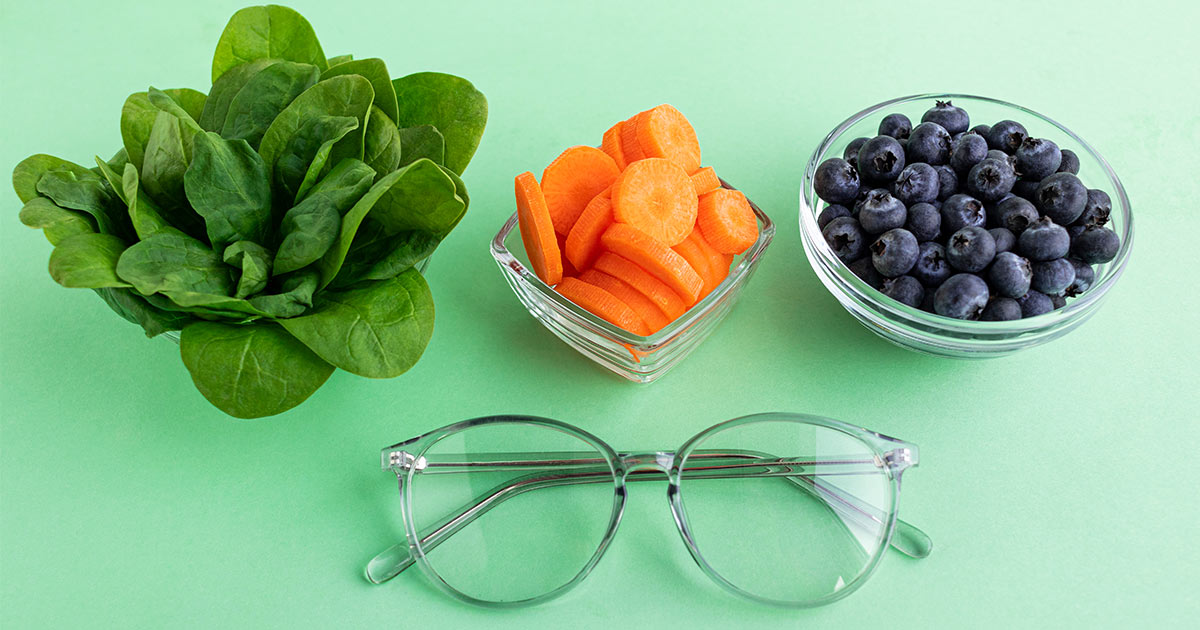
Good vision isn’t just about genetics or regular eye exams — your diet plays a powerful role in keeping your eyes healthy over the long term.
Certain vitamins, minerals, and antioxidants help protect against age-related vision problems like cataracts, macular degeneration, and dry eyes. In fact, what you put on your plate can have a major impact on what you see.
Key Nutrients That Support Eye Health
Vitamin AEssential for maintaining the health of your cornea, the outermost surface of your eye. It also helps with night vision.
Best Sources: Carrots, sweet potatoes, spinach, and kale.
Lutein and Zeaxanthin
These powerful antioxidants are found in high concentrations in the retina. They help filter harmful blue light and protect against macular degeneration.
Best Sources: Leafy greens like spinach, kale, and collard greens; also found in corn, eggs, and orange peppers.
Vitamin C
A strong antioxidant that may reduce the risk of cataracts and slow the progression of age-related macular degeneration (AMD).
Best Sources: Citrus fruits like oranges, grapefruits, strawberries, and bell peppers.
Vitamin E
Protects eye cells from free radical damage, which can contribute to cataracts and AMD.
Best Sources: Almonds, sunflower seeds, and hazelnuts.
Zinc
Plays a critical role in transporting vitamin A from the liver to the retina to produce melanin, a protective pigment in the eyes.
Best Sources: Oysters, beef, pumpkin seeds, and legumes.
Omega-3 Fatty Acids
Important for proper retinal function and reducing dry eye syndrome symptoms.
Best Sources: Salmon, tuna, walnuts, flaxseeds, and chia seeds.
Lifestyle Tips for Maximizing Eye Health Through Diet
Eat a Colorful Plate
A diet rich in a variety of colorful fruits and vegetables ensures a broad range of essential nutrients.
Limit Processed Foods
High-sugar, high-fat diets have been linked to increased risk of eye disease and inflammation. Choose whole foods whenever possible.
Stay Hydrated
Proper hydration supports tear production and helps prevent dry eyes.
Consider Supplements
If you have dietary restrictions or specific risk factors (like family history of AMD), your doctor may recommend eye health supplements.
The Link Between Overall Health and Vision
Chronic health conditions like diabetes and high blood pressure can directly affect your eyesight. Diabetic retinopathy, glaucoma, and hypertensive retinopathy are serious complications that arise when these conditions are poorly managed.A healthy diet benefits not just your eyes, but your entire body. Maintaining a balanced diet, staying active, and getting regular check-ups can greatly reduce your risk of vision-threatening conditions.
Final Thoughts
Your eyes are precious — and protecting them begins with what you eat. By incorporating more nutrient-dense foods into your meals and living a healthy lifestyle, you give yourself the best chance of maintaining clear, strong vision for years to come.Regular eye exams paired with a healthy diet are your first lines of defense in preserving your sight.
Take care of your eyes — they are the windows to your world.









